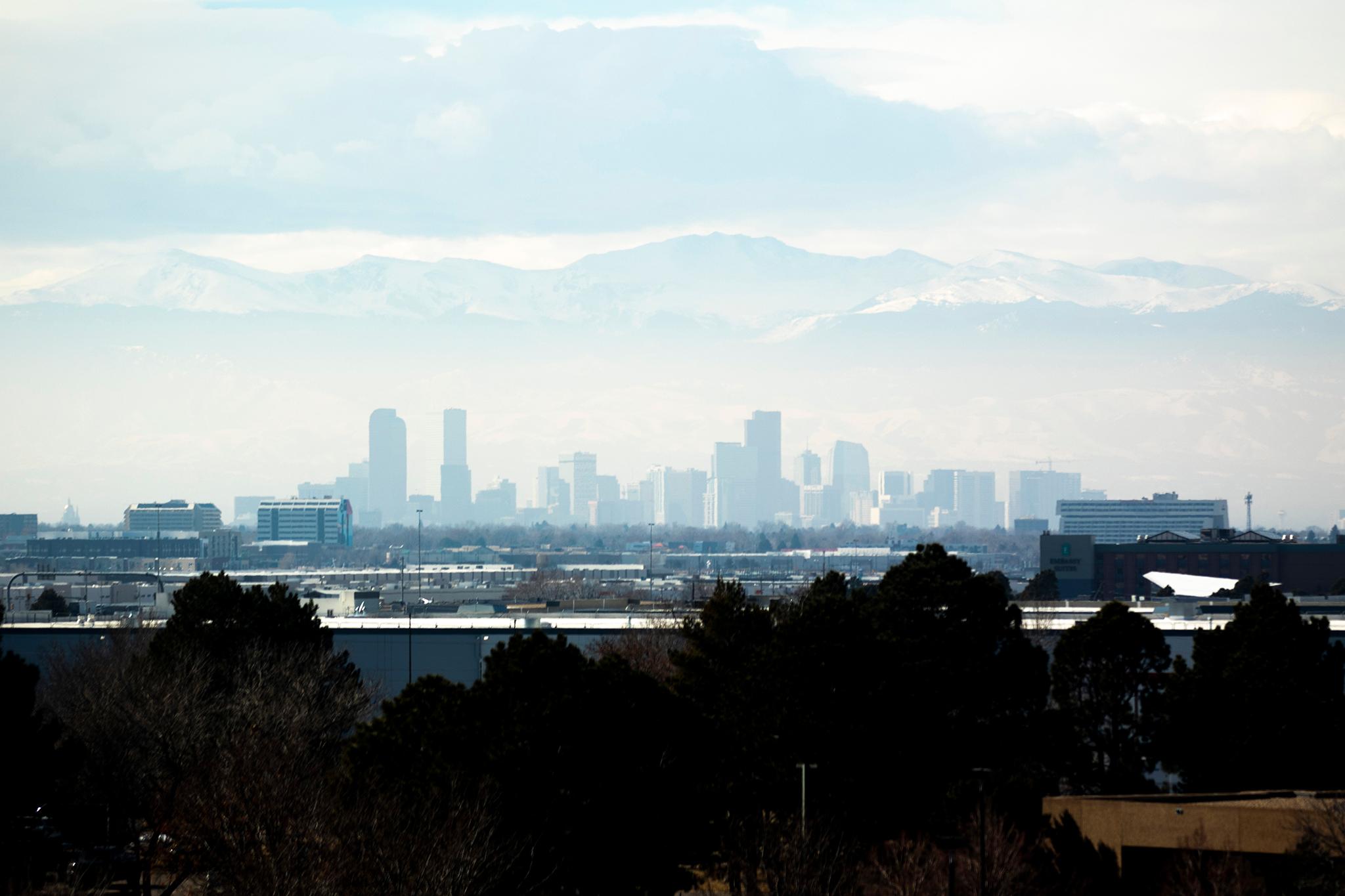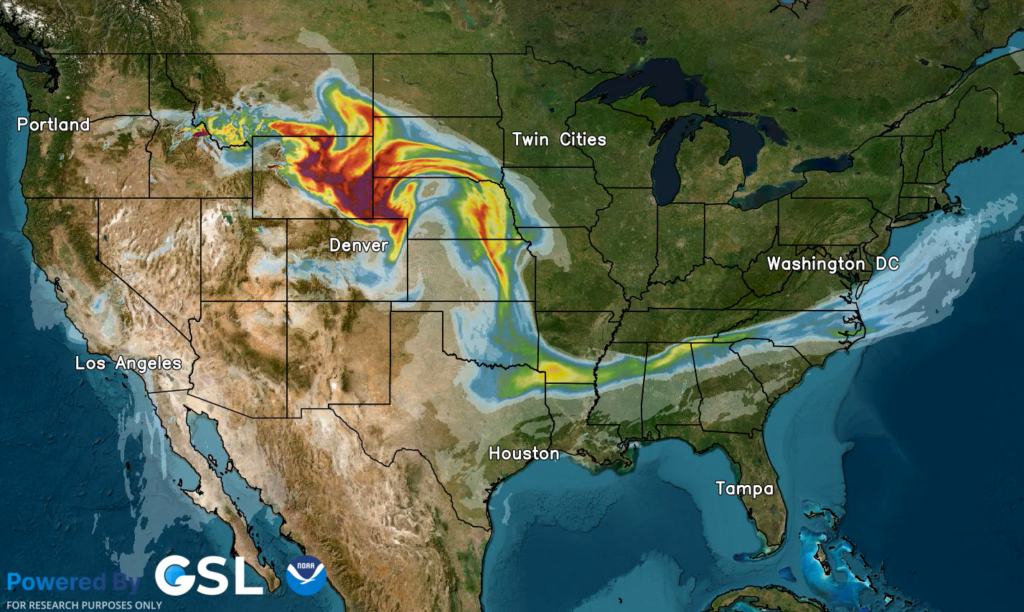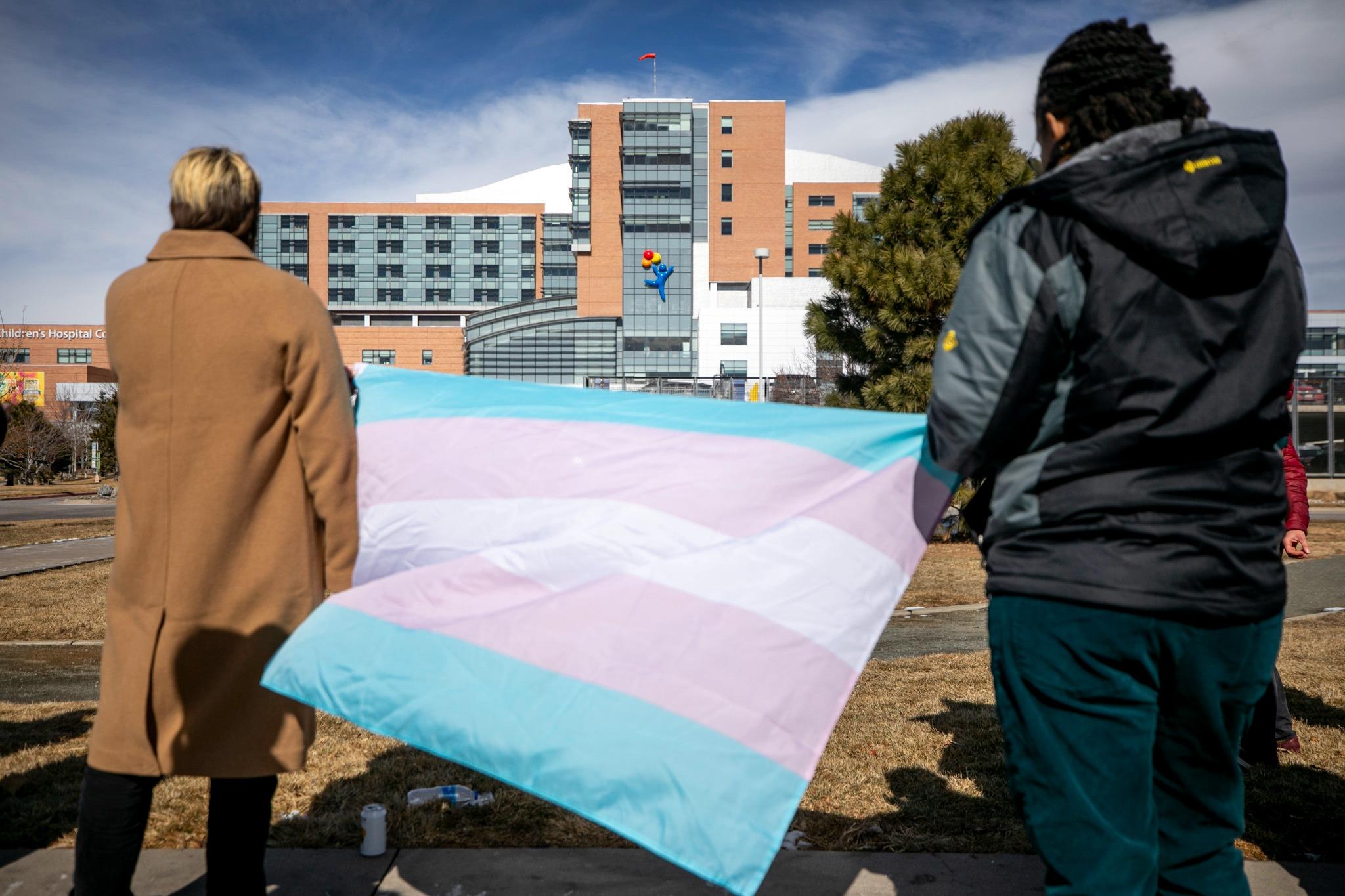
A cold front entered Colorado Monday morning, bringing in smoke from wildfires burning in Wyoming, Montana, Utah and Idaho.
According to the National Weather Service in Boulder, skies will be hazy throughout the day.
The smoke is primarily blowing into northwestern and eastern Colorado. While the out-of-state smoke has yet to prompt any air quality advisories, NWS said it expects that to change as smoke continues to move across the state.
Despite cooler temperatures in the upper 40s Monday morning, the Denver metro will continue to experience highs in the 80s this week during the day — 10 degrees above average for the first week of October.
The warmer temperatures will continue across the entire state for the “foreseeable future,” according to Paul Schlatter, a Science and Operations Officer at the National Weather Service in Boulder.
“It's such a stubborn weather pattern that at least for the next seven days, we don't even really have much precipitation in the forecast,” Schlatter said. “There could be some isolated, really light showers in the mountains, but for the Front Range and the Grand Junction areas — they are going to be very warm and dry for the next seven days.”
Grand Junction and Fort Collins will also experience warmer than usual temperatures this week. Both cities will average in the mid-to-high 80s, while Colorado Springs will be slightly cooler, staying in the upper 70s.

Colorado’s warm start to October comes after an unusually hot September — Denver’s hottest in more than 150 years. Those high temperatures are being intensified by a lack of rainfall and low humidity.
Denver hasn’t seen rain in over two weeks, and while the Denver metro area is currently facing severe drought conditions, the surrounding regions are under moderate drought, according to the U.S. drought monitor. But according to Schlatter, unless winds pick up critical wildfire conditions aren’t as big of a concern.
“It's going to continue to be unusually warm, but unfortunately that's been the new normal for the last 10 to 20 years,” Schlatter said. “The weather in Colorado has gotten a lot warmer and drier in September and October, and I think we're seeing that yet again in 2024.”
As for the smoke, Schlatter said it will likely dissipate by Tuesday afternoon. It will remain “really thick and noticeable for 12 to 18 hours” before moving east.








